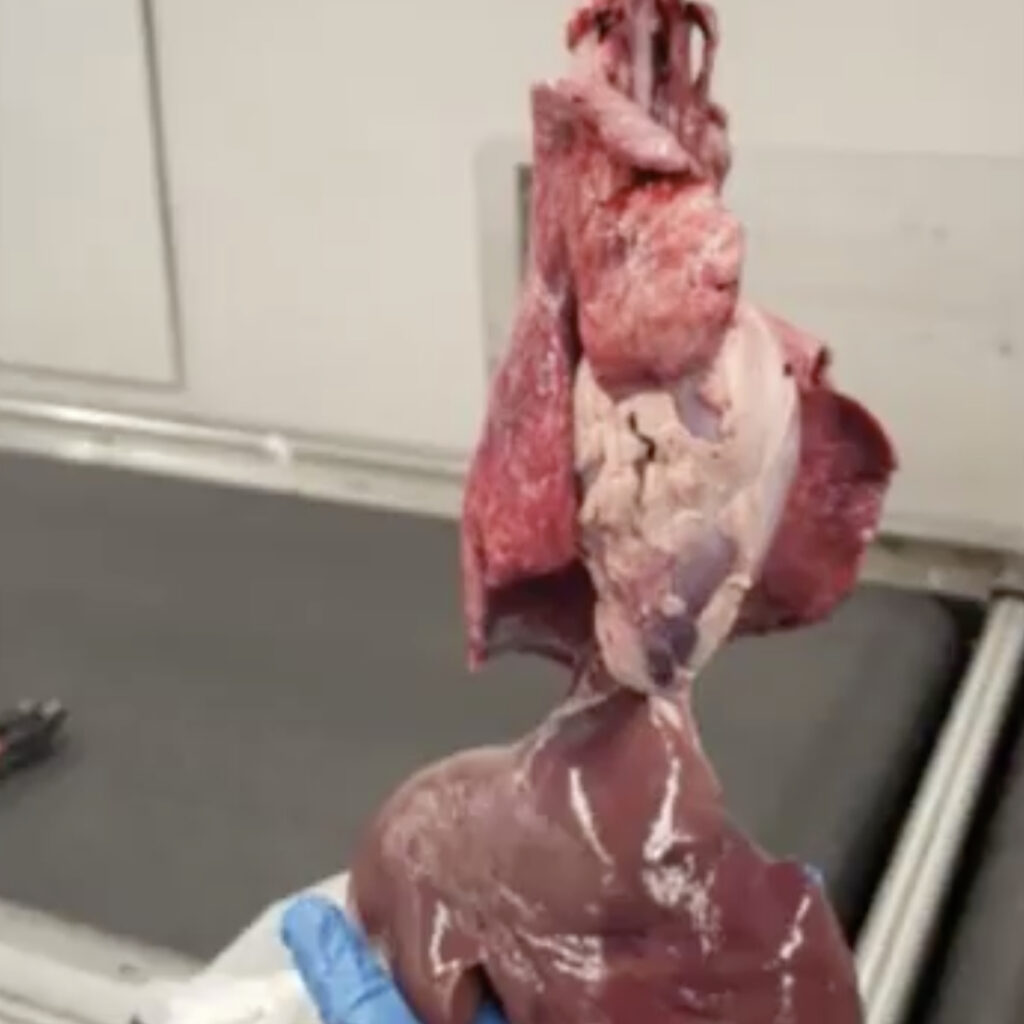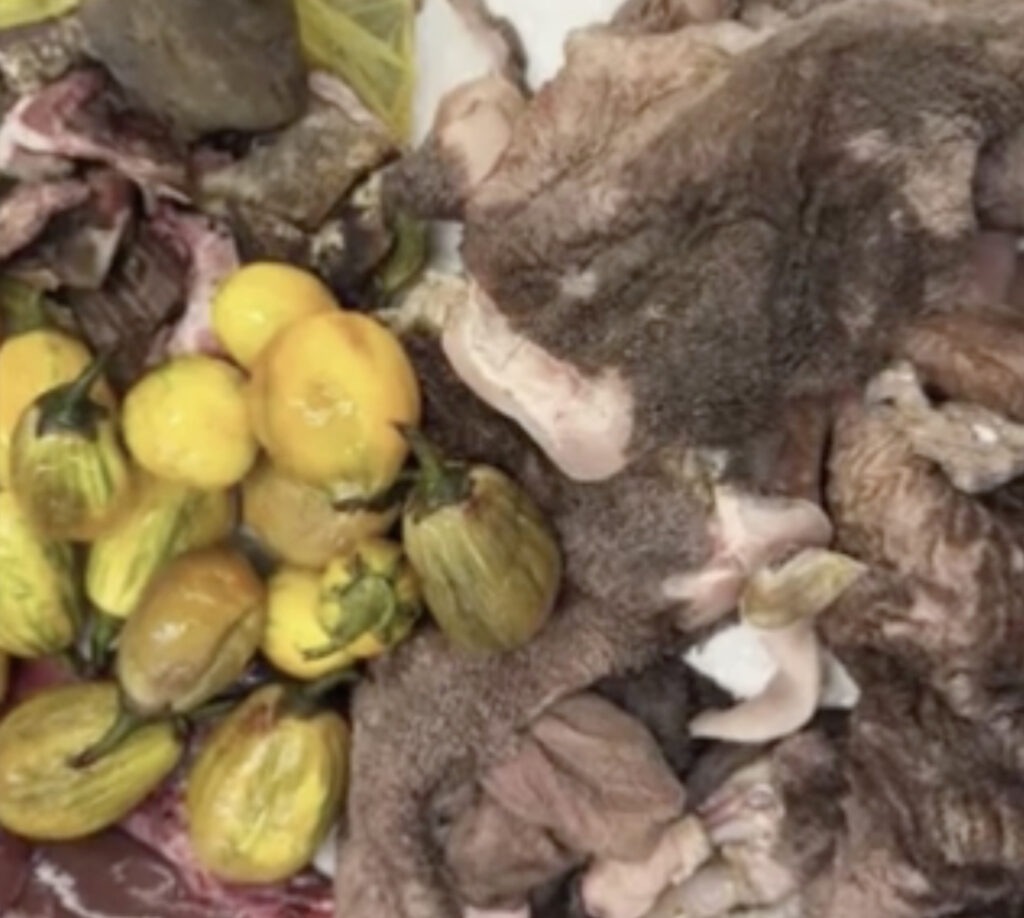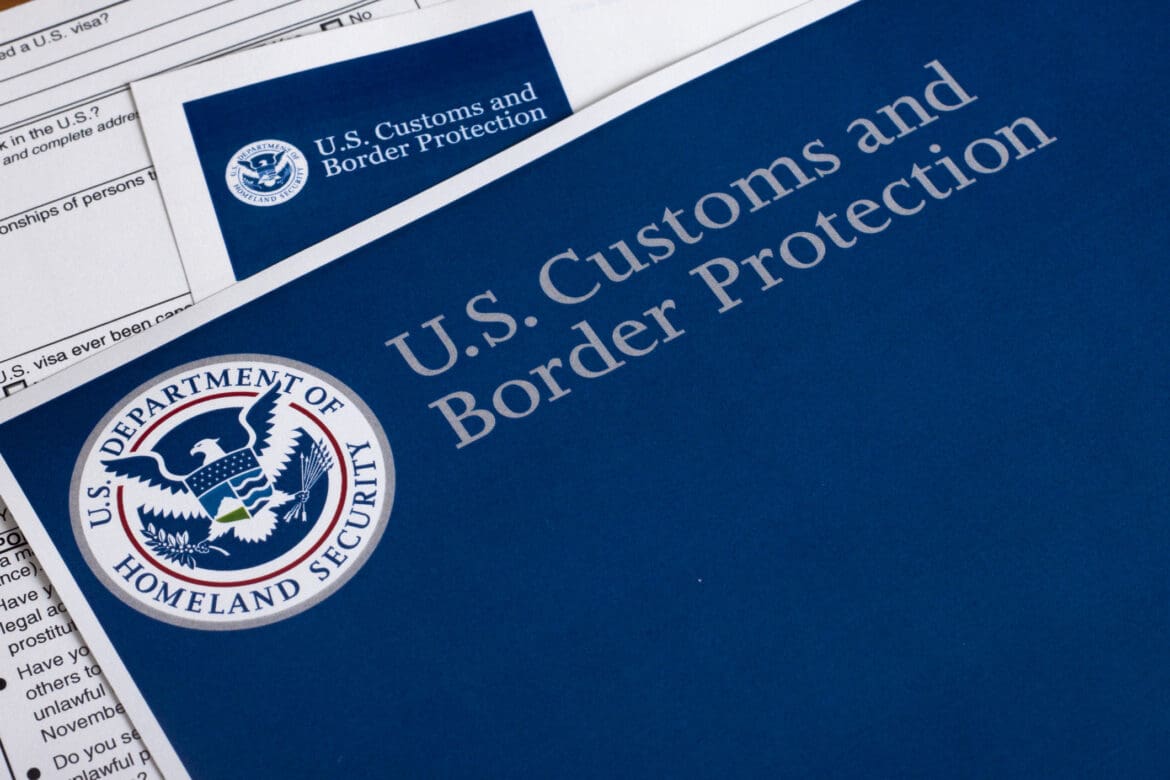Advertiser & Editorial Disclosure: The Bulkhead Seat earns an affiliate commission for anyone approved through the links below. This compensation may impact how and where links appear on this site. We work to provide the best publicly available offers to our readers. We frequently update them, but this site does not include all available offers. Opinions, reviews, analyses & recommendations are the author’s alone, and have not been reviewed, endorsed, or approved by any of these entities.
Newsweek is reporting that two people were stopped by US Customs and Border Protection (CBP) after they tried to smuggle 15 pounds of raw goat organs into the US through Chicago O’Hare International Airport (ORD). The couple was returning from the Democratic Republic of Congo on October 10th when the discovery was made.


Packed inside their luggage, agents found the trachea, heart, lungs, liver, kidneys, and the entire digestive system of a goat (over 15 pounds), along with a pound of unidentified meat and two pounds of African eggplants.
US Customs and Border Protection (CBP) regulations state:
You may not import fresh, dried or canned meats or meat products from most foreign countries into the United States. Also, you may not import food products that have been prepared with meat. Travelers entering the United States must declare all agricultural products. All fruits and vegetables are subject to inspection. Fresh fruits and vegetables need to be clean and may be prohibited if they have insects or diseases.”
Animal remains and raw meat can contain pathogenic bacteria or viruses. Animals in the Democratic Republic of Congo have been previously infected by diseases such as ovine rinderpest, as well as monkeypox and even Ebola. Transporting raw meat is a big negative when entering the United States and it has not yet been released if these two individuals will be charged.
Anthony’s Take: I’m not of what the purpose of trying to import goat entrails and eggplant, but I’m glad this was caught upon entry. The risk of foreign pathogens is high and it’s unnecessary to try to bring banned items into the country.
(Image Credits: US Customs and Border Protection.)
(H/T: View from the Wing.)
User Generated Content Disclosure: The Bulkhead Seat encourages constructive discussions, comments, and questions. Responses are not provided by or commissioned by any bank advertisers. These responses have not been reviewed, approved, or endorsed by the bank advertiser. It is not the responsibility of the bank advertiser to respond to comments.
Advertiser & Editorial Disclosure: The Bulkhead Seat earns an affiliate commission for anyone approved through the links above This compensation may impact how and where links appear on this site. We work to provide the best publicly available offers to our readers. We frequently update them, but this site does not include all available offers. Opinions, reviews, analyses & recommendations are the author’s alone, and have not been reviewed, endorsed, or approved by any of these entities.
